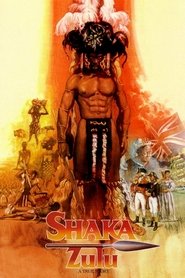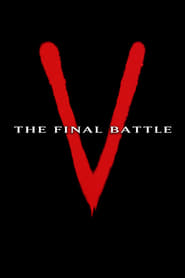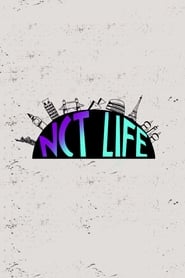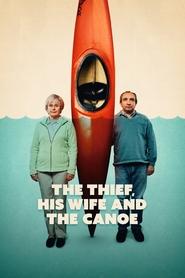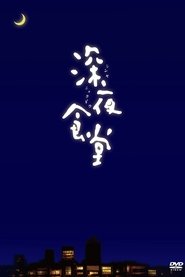Popular Action Adventure TV Series - Page 382
-
Ramdam
2001
Ramdam
2001
star 6The ups and downs of the L'Espérance-Laporte-Carpentier, a large blended family made up primarily of young teenagers. -
Pulang Araw
2024
Pulang Araw
2024
star 7.2Red Sun is a family drama that tells stories of courage, sacrifice, and hardships that every Filipino family has. These stories were inspired by the tales of the unsung heroes who defied the odds of World War II and the Japanese occupation of the Philippines. -
Days with My Stepsister
2024
star 7.7When his father remarries, Yuta Asamura winds up sharing a roof with his new stepsister, Saki Ayase, the hottest girl in his grade. Carrying the scars of their parents’ troubled divorces, they vow to maintain a respectful distance. But what starts as cautious camaraderie blossoms into something deeper from shared experiences. Is it admiration, familial love, or something more? -
Shaka Zulu
1986
Shaka Zulu
1986
star 7.1South Africa, 1823. The Zulu Empire, headed by King Shaka, a brilliant but ruthless military strategist, begin to encroach on the British colony of Cape Town. A volunteer cadre of explorers, mercenaries and professional soldiers are sent to Zululand to try to make contact with Shaka and assess the real threat of his army. -
My One-Hit Kill Sister
2023
star 6.9Asahi, a boy who loves video games is killed in a traffic accident and ends up in another world. He tries to enjoy the otherworldly adventuring life he's always dreamed of, but his stats are on the level of an NPC's. He is in big trouble and is being chased by a monster when he hears, "Fear not, little brother!" and the monster is killed in one hit by Asahi's older sister, Maya, who followed Asahi to this world. So Maya has acquired some seriously OP skills, but she takes her adoration of her younger brother to extremes. Thus begins their story about an overpowered older sister with a brother complex and a younger brother with the weakest of stats in another world. -
The Man Who Fell to Earth
2022
star 7.4An extraterrestrial alien arrives on Earth at a turning point in human evolution and must confront his own past to determine our future. -
V: The Final Battle
1984
V: The Final Battle
1984
star 7.3A small group of human resistance fighters fight a desperate guerilla war against the genocidal extra-terrestrials who dominate Earth. -
Bhakharwadi
2019
Bhakharwadi
2019
star 8The story of Bhakharwadi revolves around two families that hail from different cultures living in the same city, Pune as neighbors. Both are competitors in business. The former runs an ancestral shop of bhakharwadi and is a follower of norms and traditions while the latter believes in matching steps with time and promotes fusion food. Both of them have sour relations due to their competitive attitude. But what will happen when the children of these two will fall for each other? -
A Hundred Memories
2025
A Hundred Memories
2025
star 8.3A heartbreaking first love story of a man who was destined to be the fate of two women who were bus guides in the 1980s, and a melodrama-comedy of shining youths who were destined to be brilliant. -
VICE News Tonight
2016
VICE News Tonight
2016
star 6.6VICE News' half-hour nightly newscast. We now interrupt your regularly scheduled worldview. -
Lucky Wheel
2011
Lucky Wheel
2011
-
BANGTAN BOMB
2013
-
HKT48 vs NGT48 Sashi Kita Gassen
2016
star 10Members of AKB48 sister groups, HKT48 and NGT48, face each other in various original competitions set by the program. -
Flower and Asura
2025
Flower and Asura
2025
star 6.5The story is set in Tonakishima, a small island with a population of 600. Hana, a high school girl who lives on the island, loves recitals, and holds regular reading sessions for the island's children. Mizuki, the president of the Broadcasting Club, senses Hana's power to attract people through her reading and invites her to join the club. Hana joins the Broadcasting Club and experiences many firsts with the other members. -
Chronicle
1966
Chronicle
1966
Chronicle is a BBC Television series shown monthly and then fortnightly on BBC Two from 18 June 1966 to its last broadcast in May 1991. Chronicle focused on popular archaeology and related subjects. The best remembered episodes of Chronicle were "The Lost Treasure of Jerusalem...?", "The Priest, the Painter and The Devil" and "The Shadow of The Templars". These were presented by Henry Lincoln who later went on to write Holy Blood Holy Grail with Michael Baigent and Richard Leigh. The BBC have made some editions available online -
The Great Train Robbery
2013
star 6.68 August 1963: Britain wakes up to news of the biggest robbery in the country’s history. A train has been hijacked and robbed, 35 miles from its arrival in central London. The country is stunned. Who could be behind it? How did they pull off such an audacious raid? -
NCT LIFE
2016
NCT LIFE
2016
star 9Variety show featuring South Korean boy band NCT and their life in the city at various locations around the world. -
The Thief, His Wife and the Canoe
2022
star 7The extraordinary and compelling story of how John Darwin faked his own death to claim life insurance and avoid bankruptcy will be told in The Thief, His Wife and the Canoe. The drama relates how Anne Darwin's husband, a prison officer, came up with the hare-brained scheme to defraud insurance companies, unbeknownst to their two sons. -
Midnight Diner
2009
Midnight Diner
2009
star 8.1Set in a small restaurant in the corner of a shopping district. The unusual eatery is only open after midnight, and its standard menu consists of just a single choice. However, the customers still come for the amusing chatter and the proprietor's willingness to cook any dish that they request. This drama depicts the lives of the restaurant's patrons, including a yakuza, an unsuccessful actor, a group of office ladies, a newspaper delivery boy, and a stripper. -
Monday Mornings
2013
Monday Mornings
2013
star 7.1Set at the Chelsea General Hospital in Portland, Oregon, the show follows the lives of doctors as they push the limits of their abilities and confront their personal and professional failings. Based on a novel by Sanjay Gupta.
 Netflix
Netflix
 Amazon Prime Video
Amazon Prime Video
 Apple iTunes
Apple iTunes
 Apple TV Plus
Apple TV Plus
 Disney Plus
Disney Plus
 Google Play Movies
Google Play Movies
 Paramount Plus
Paramount Plus
 Hulu
Hulu
 HBO Max
HBO Max
 YouTube
YouTube
 fuboTV
fuboTV
 Peacock
Peacock
 Peacock Premium
Peacock Premium
 Amazon Video
Amazon Video
 The Roku Channel
The Roku Channel
 AMC+
AMC+
 Kocowa
Kocowa
 Hoopla
Hoopla
 The CW
The CW
 Vudu
Vudu
 Starz
Starz
 Showtime
Showtime
 PBS
PBS
 Pantaflix
Pantaflix
 FXNow
FXNow
 Tubi TV
Tubi TV
 Kanopy
Kanopy
 Comedy Central
Comedy Central
 Crunchyroll
Crunchyroll
 Microsoft Store
Microsoft Store
 Redbox
Redbox
 Sun Nxt
Sun Nxt
 ABC
ABC
 DIRECTV
DIRECTV
 Crackle
Crackle
 Fandor
Fandor
 Plex
Plex



